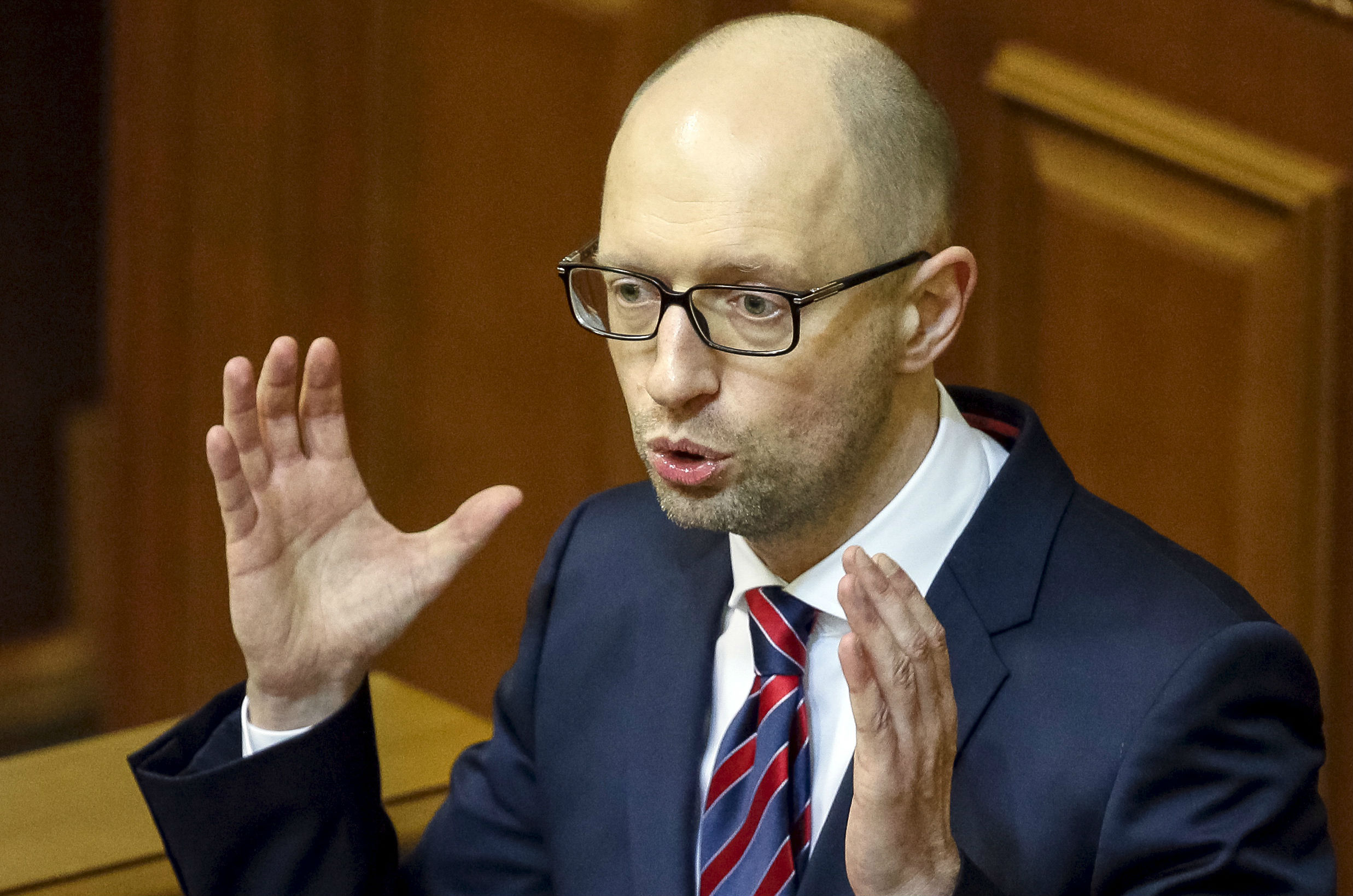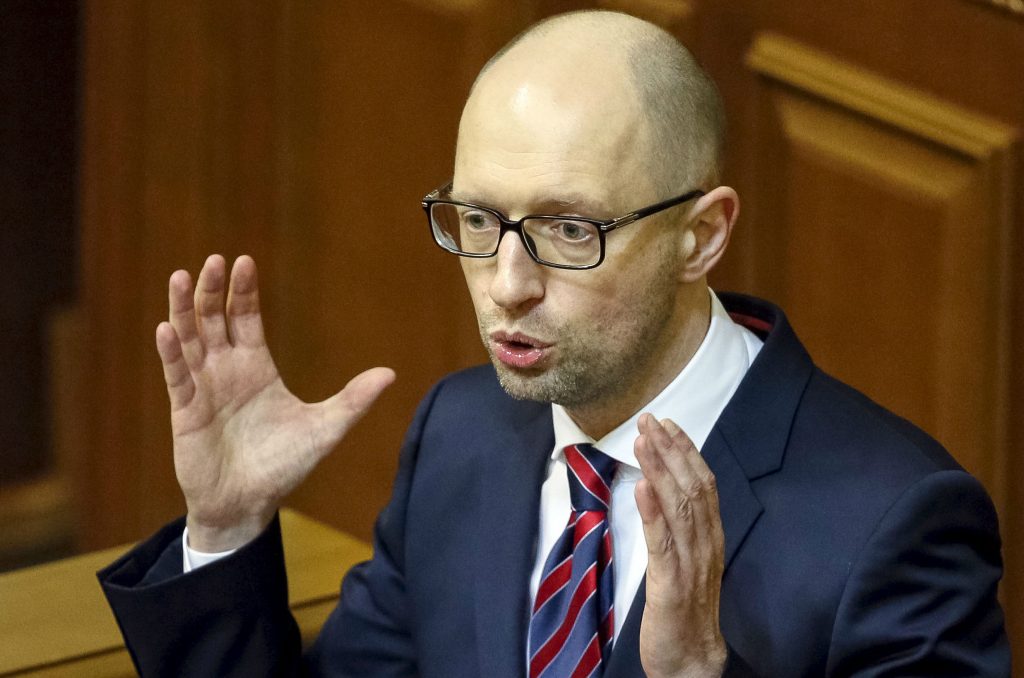 Turmoil in Kyiv continued as President Petro Poroshenko called on both Prime Minister Arseniy Yatsenyuk and Prosecutor General Viktor Shokin to resign on February 16. The President’s parliamentary faction then introduced a resolution in the Rada, Ukraine’s parliament, describing the performance of the cabinet of ministers, headed by Yatsenyuk, as inadequate. That measure passed, but Yatsenyuk then suggested that the Rada consider a resolution of no-confidence in the government, which he also leads. Had that vote passed, the government would have dissolved, and Yatsenyuk would have lost his job. But that resolution could not command a majority. It failed by 32 votes.
Turmoil in Kyiv continued as President Petro Poroshenko called on both Prime Minister Arseniy Yatsenyuk and Prosecutor General Viktor Shokin to resign on February 16. The President’s parliamentary faction then introduced a resolution in the Rada, Ukraine’s parliament, describing the performance of the cabinet of ministers, headed by Yatsenyuk, as inadequate. That measure passed, but Yatsenyuk then suggested that the Rada consider a resolution of no-confidence in the government, which he also leads. Had that vote passed, the government would have dissolved, and Yatsenyuk would have lost his job. But that resolution could not command a majority. It failed by 32 votes.
What does this all mean? Poroshenko and Yatsenyuk are both under intense pressure from reform members of the government and the Rada, civil society, and the West for their glacial pace in dealing with corruption. On February 16, Poroshenko took steps designed to show his reform credentials. He called for the resignation of Shokin and oversaw the passage of privatization legislation desired by international financial institutions. At the same time, he put in play the resolution criticizing the cabinet of ministers to place the blame for the absence of reform on Yatsenyuk. The Prime Minister responded by insisting on a vote of no confidence fully expecting it to fail. He was right. It did not pass because the President does not have a candidate to take Yatsenyuk’s place who would be acceptable to reformers at home and abroad, and to his own coalition. The failure of the no-confidence vote in the government was a partial vindication of Yatsenyuk. In all probability, early parliamentary elections can likely be avoided this year. On balance this is positive because new elections would divert the government from reform.
All of this leaves uncertain the next stage of reform and the future of the reform ministers. International Monetary Fund (IMF) Managing Director Christine Lagarde issued two strong criticisms of Ukraine’s reform efforts over the past two weeks. Ukraine’s economy is heavily dependent on a $17.5 billion rescue loan; the latest tranche, due in the next several weeks, still has not been approved. Will the IMF be satisfied with Shokin’s dismissal and the privatization legislation? That cannot be taken for granted. If all or most of the reform ministers leave, or if Yatsenyuk’s government falls without a viable successor, Poroshenko will be in a tough spot. For all these reasons, we should expect him to find a way out of this crisis that keeps a visible reform team in place.
John E. Herbst is Director of the Dinu Patriciu Eurasia Center at the Atlantic Council. He served as US Ambassador to Ukraine from 2003 to 2006.
Image: Ukraine's Prime Minister Arseniy Yatsenyuk delivers a speech during a parliament session in Kyiv, Ukraine, February 16, 2016. REUTERS/Gleb Garanich
